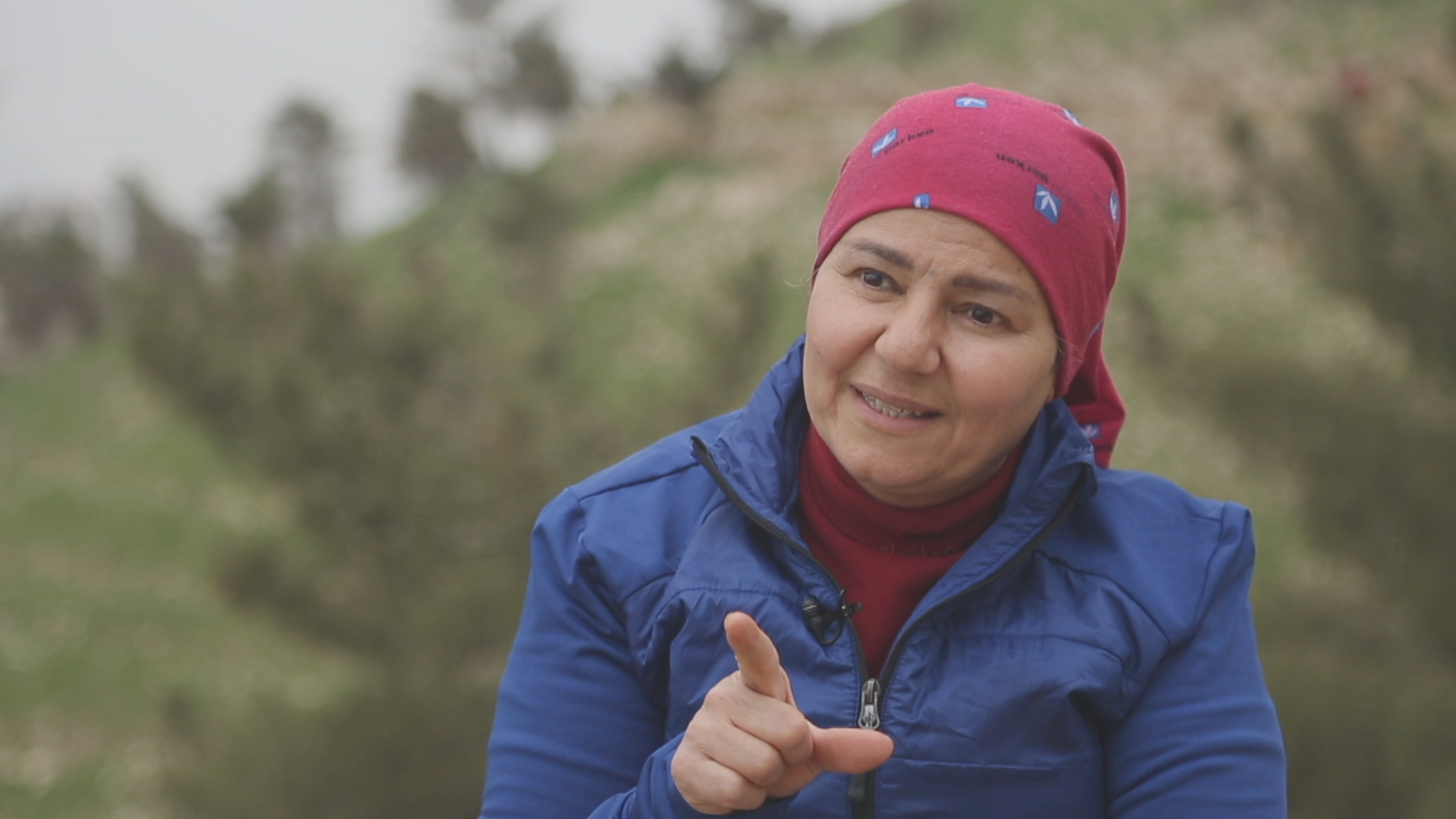
Members of the Association of Combating Cancer hike in the Kurdistan Region in April 2022. Photo: Rudaw/Screenshot
SULAIMANI, Kurdistan Region - More than 50 Kurdish women suffering from cancer have found solace in hiking and other physical workouts, believing this move could help alleviate some of the pain of their chronic ailments.
Bayan Hama Salih, 50, is one of the cancer patients who believes that mountaineering and other sports workouts have contributed to the improvement of her health, helping her to subsequently recover from it.
Bayan says she has lost her mother and grandmother to cancer.
"I used to fall down all the time [when] I was walking. I had lost morale, crying because of it. I couldn't even walk due to [cancer]. Then bit by bit, I started to walk and hike, climbing Goizha mountain, and then other mountains," Bayan told Rudaw over the weekend.
Bayan recounted the story of how she challenged her doctor's words that she might never live a normal life again.
"I [will] never forget the moment when my doctor told me that, 'it is impossible for you to be able to walk on your feet,' or to live like a normal person once again. Thanks be to God, I passed this stage. Thank God, I live a happy life now," she said.
Bayan and her friends established the Association of Combating Cancer in 2013. The association's core aim is to encourage cancer patients to battle the disease through exercise and entertainment activities.
The cancer patients have been given advice by their doctors that they should spend three days a week doing workouts in indoor gyms where they are joined by other women who suffer from high blood pressure and diabetes.
They are trained by Farah Muradsalimi, a Kurdish woman from Iran in her fifties who has herself recovered from breast cancer.
In the gym center in Sulaimani, she trains female patients in a range of different workouts that help them to live healthier lives and to recover from their ailments.








Comments
Rudaw moderates all comments submitted on our website. We welcome comments which are relevant to the article and encourage further discussion about the issues that matter to you. We also welcome constructive criticism about Rudaw.
To be approved for publication, however, your comments must meet our community guidelines.
We will not tolerate the following: profanity, threats, personal attacks, vulgarity, abuse (such as sexism, racism, homophobia or xenophobia), or commercial or personal promotion.
Comments that do not meet our guidelines will be rejected. Comments are not edited – they are either approved or rejected.
Post a comment